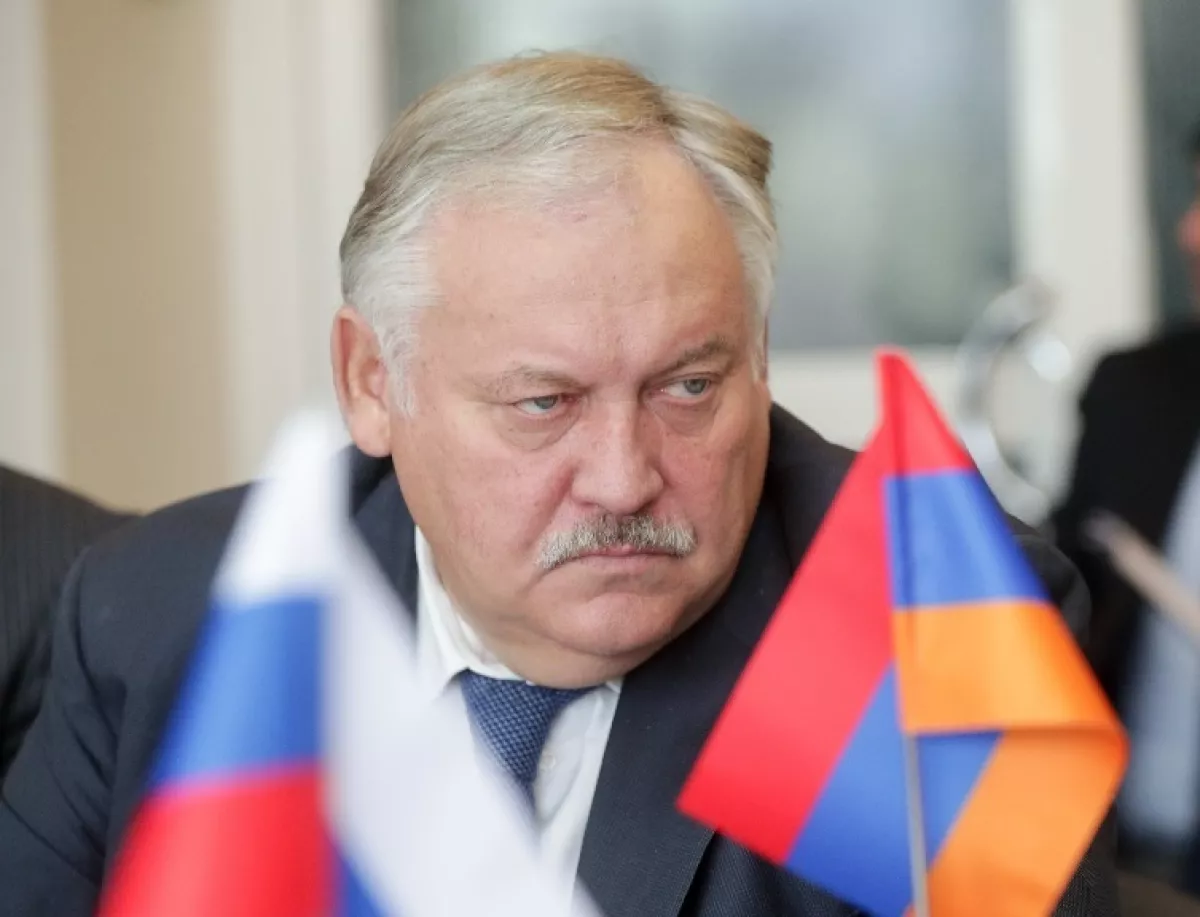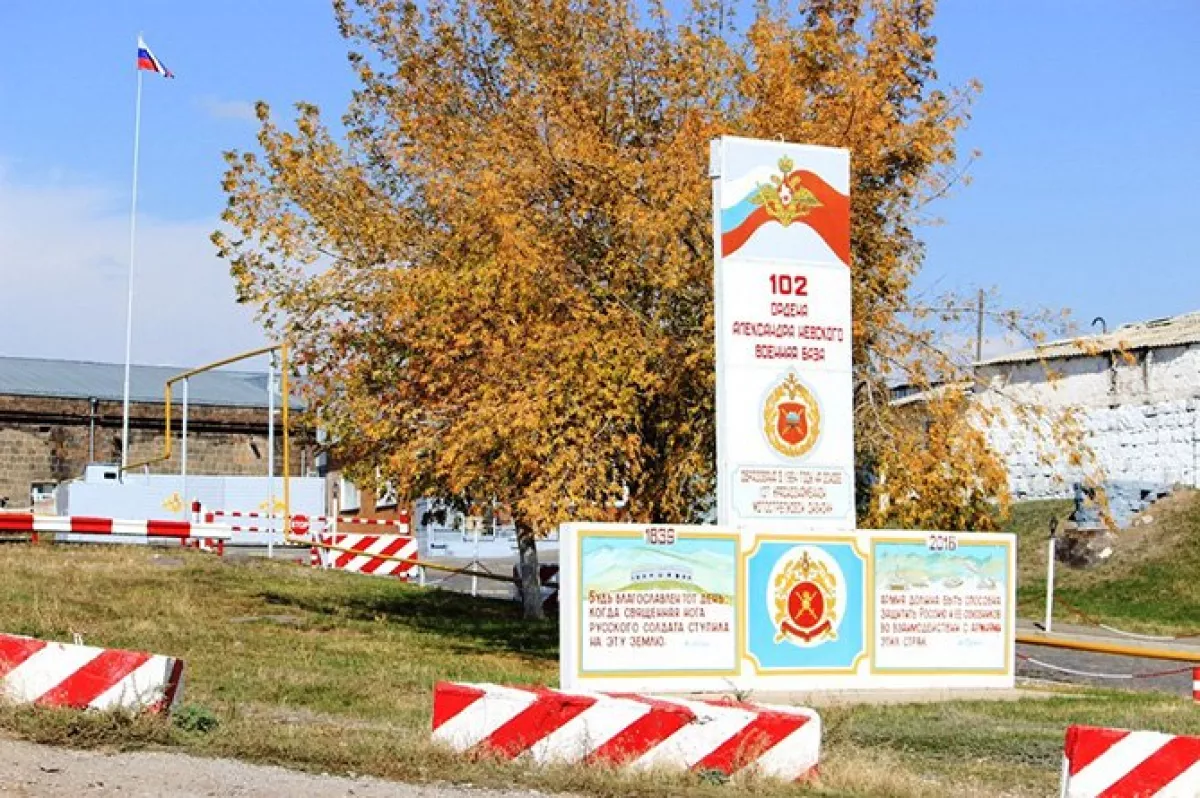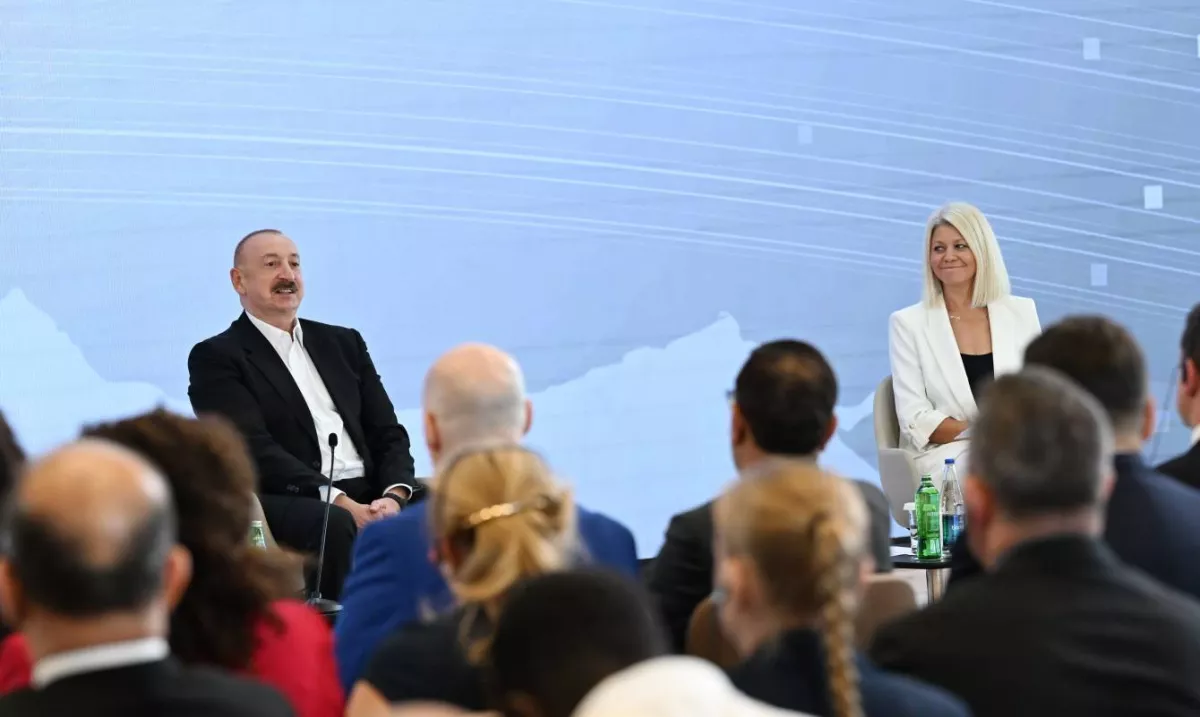Persona non grata with a delusion of grandeur Yet another tantrum from Zatulin
Almost every person is born with some talent, for better or worse. And Konstantin Zatulin, First Deputy Chairman of the State Duma Committee on CIS Affairs, is no exception — he possesses the unique ability to sweep out absolute nonsense and utter drivel with his tongue, much like Ilf and Petrov’s janitor Tikhon did with his broom.
This time, the character in question has once again distinguished himself with anti-Azerbaijani remarks in an interview with Lenta.ru, claiming, in particular, that “gas supplies from Azerbaijan to Ukraine are an obvious show of support for Kyiv.” According to him, Baku may call such actions part of a multi-vector policy, but in reality, they increasingly diverge from Russian interests.
As you can see, this is yet another example of primitive thinking and unparalleled foolishness from a man who is banned from entering a number of countries, including Azerbaijan. Even in Armenia — which this MP so zealously defended during its occupation of Azerbaijani territories, clearly not out of pure altruism — he has been declared persona non grata, despite previously strutting around there like a Russian lord surveying his estate.

Apparently, the ban on entry to his “favorite” country has so damaged Zatulin’s mind that he has completely forgotten the fact that Azerbaijan is an independent state and is under no obligation to coordinate its foreign policy moves with Russia.
It’s almost embarrassing to remind the Chairman of the State Duma Committee on CIS Affairs that Azerbaijan is neither a member of the Collective Security Treaty Organization (CSTO), nor the Eurasian Economic Union, nor the Union State. Therefore, the claim that Baku is “moving away from Russia’s interests” is utterly absurd.
Anyone with even a minimal capacity for strategic thinking has long understood that official Baku bases its foreign policy solely on national interests. If it is beneficial for Azerbaijan to sell gas to Europe or Ukraine, Azerbaijan will do so. This is not a matter of friendship or hostility. It is a question of sovereign choice based on pragmatism and geopolitical calculation.
By the way, note that Zatulin speaks of multi-vector policy as something negative, although in reality, it is a sign of true independence for states that stand firmly on their own feet and are capable of defending their interests.

And now, a brief historical overview specially for Zatulin. Let’s start with some questions: “When Russia was arming Armenia, supplying it with missile systems, tanks, and ammunition, did anyone in Moscow ask Azerbaijan’s opinion on this matter?” “When the 102nd Russian military base was deployed in Gyumri, Armenia, did anyone consult official Baku?”
The answer is unequivocally: “No.” And all this happened while Russia was a co-chair of the OSCE Minsk Group, which was supposed at the time to facilitate the resolution of the Armenian-Azerbaijani conflict. However, this fact did not prevent Russia from supporting the occupying and aggressive country — Armenia.
Azerbaijan managed to build up its potential, become a regional leader, strengthen its economy and army, and independently, without anyone’s help, liberate its ancestral lands from Armenian occupation and establish a genuine multi-vector policy based on national interests. And Azerbaijan will continue to follow this course.
Moreover, official Baku has repeatedly and clearly emphasized that Azerbaijan has never politicized, nor intends to politicize, its energy policy.

President Ilham Aliyev, during a meeting with participants of the 3rd Shusha Global Media Forum, gave a very detailed response on this topic:
“We were never trying to compete with Russia — even when Russia was supplying 150+ billion cubic meters to Europe — and we never offered our services as a substitute. No. For us, it's absolutely commercial. We have always treated our energy policy as business-oriented. We never politicized it. We never cut gas supply to countries we didn’t like. We always looked at it from a commercial standpoint and always honored our obligations. So, there has never been any disruption in supplies to any country. That is the real story.”
So, Zatulin or anyone else should not waste time looking for a black cat in a dark room, especially when there isn’t one. It would be better to concern themselves with the fate of their own Russia, which is losing its already few partners at lightning speed. The reason is that Moscow has built its foreign policy for centuries based on power rather than partnership.
Therefore, it is no surprise that the post-Soviet countries today are seeking new formats of cooperation. Especially given a number of, to put it mildly, unfriendly steps against Azerbaijan. And such, if one may say, characters like Zatulin only exacerbate the situation, profiting politically—and perhaps in other ways as well—from it.








